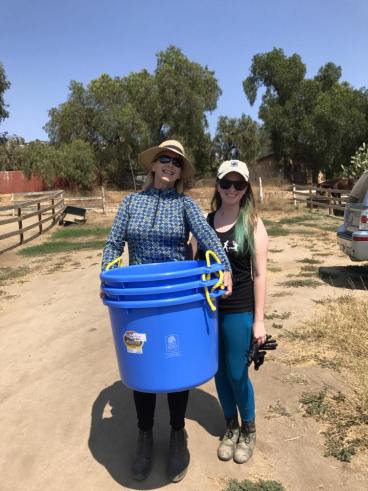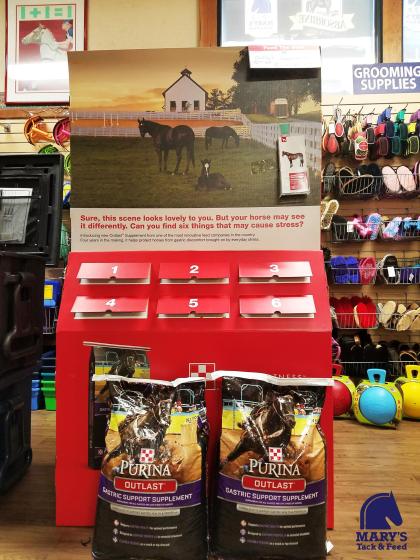Reducing Your Horse's Colic Risk
1st Jun 2018
The word ‘colic’ is dreaded in equestrian circles. It feels like it comes on without warning and if you haven’t experienced it yourself, you know someone who has. And while most horses recover - sometimes without surgery - it is still the leading medical cause of death in horses. Through proper stable management you can greatly reduce your horse’s colic risk. Here are things you can should consider:
Keep your horse hydrated – A dehydrated horse lacks water in their system to keep food moving through their gut. This could lead to impaction. Allow your horse continuous access to fresh clean water, provide access to a salt or mineral lick, and watch the weather. Sometimes horses will drink less during chaotic weather cycles, consider adding an electrolyte your horses feed during those times.

Manage Parasites – Tape worms and other parasites can damage your horse’s intestinal track. Be sure to discuss fecal testing and de-worming with your veterinarian; based upon your horse’s and herd’s needs. Manure management is also a key step in managing parasites, so be sure to clean stalls, pastures, and fields often.
Evaluate diet and avoid drastic feed changes – Horse’s guts were designed to process high-fiber forage all day long, so a good quality forage should be the cornerstone of your horse’s diet. Large amounts of grain may raise your horse’s risk of gas colic so it’s better to feed concentrates in smaller meals spread throughout the day. Be sure to make any grain, hay, or pasture changes gradually as an abrupt change can increase gas production, shocking the system, and increasing colic risk.

Reduce Sand – Horse’s guts tend to accumulate more than just feed. Depending on the type of turnout and environment your horse is in they will also ingest a fair amount of sand, dirt, and other indigestible material. This makes it difficult for water to move freely through the GI Tract making it more likely your horse will have an impaction. Putting hay up in feed manger and over rubber mats will reduce the amount of sand and dirt ingested. Feeding a Psyllium supplement as directed will help move what’s already in your horse’s system out.
Dental Care – Have your vet or equine dentist check your horse’s teeth routinely. If those pearly whites are in good shape then your horse is more likely to chew their feed properly, reducing the risk of impaction.
There is no magic spell that can guarantee your horse will live a colic free life, but an ounce of prevention is worth of pound of cure. The friendly and knowledgeable staff at Mary’s Tack and Feed are always just a phone call away to discuss products that may work for you.
